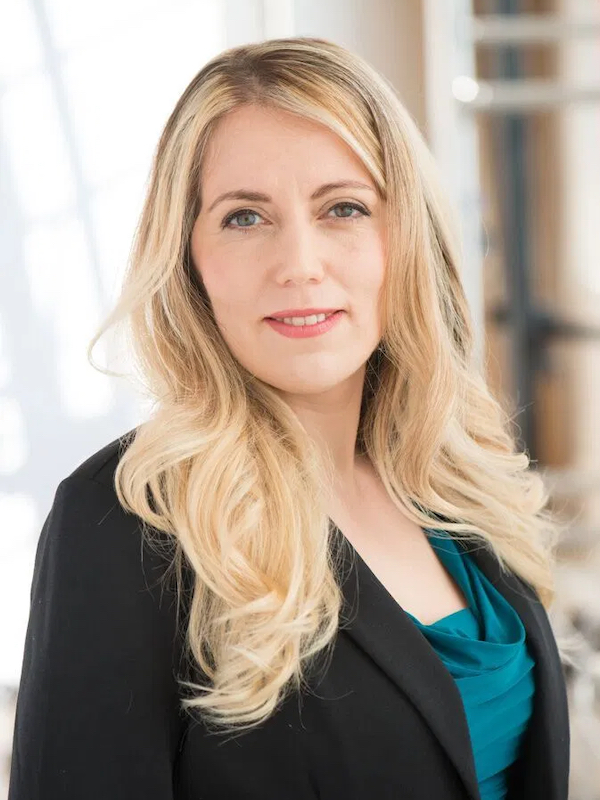Keynote Speakers
Refik Anadol
Space In the Mind of a Machine
Perception of space – whether it is physical, digital, topological, quantum, or hyper – requires particular kinds of interactive and cognitive processes through which we become aware of the relative positions of objects around us. Our techno-aesthetic inquiries into how we make sense of spaces focus on revealing numerous meanings of this awareness from the intersection of post-digital architecture, neuroscience, technology, and machine learning. In this talk, I will discuss how audio-visual, immersive, and interactive media arts help us overcome the limitations of perspectival representation and play a crucial role in the symbiotic relationship between perception and imagination.
Bio
Refik Anadol is a media artist, director, and pioneer in the aesthetics of machine intelligence. His work addresses the challenges, and the possibilities, that ubiquitous computing has imposed on humanity, and what it means to be a human in the age of AI. He explores how the perception and experience of time and space are radically changing now that machines dominate our everyday lives. As a spatial thinker, Anadol is intrigued by the ways in which the digital age and machine intelligence allow for a new aesthetic technique to create enriched immersive environments that offer a dynamic perception of space.
Residing at the crossroads of art, science, and technology, Anadol’s site-specific three-dimensional data sculptures, live audio/visual performances, and immersive installations take many virtual and physical forms. Entire buildings come to life, floors, walls, and ceilings disappear into infinity, breathtaking aesthetics take shape from large swaths of data, and what was once invisible to the human eye becomes visible, offering the audience a new perspective on, and narrative of their worlds.
Anadol currently resides in Los Angeles, California, where he owns and operates Refik Anadol Studio and RAS LAB, the Studio’s research practice centered around discovering and developing trailblazing approaches to data narratives and artificial intelligence. He is also a lecturer and researcher for UCLA's Department of Design Media Arts from which he obtained his Master of Fine Arts.
Maya Ackerman
Commercializing Creative Systems - Opportunities and Challenges
The computational creativity research community is leading the charge on autonomous and human-machine collaborative creative systems, which stand to have substantial social and economic impact. So far, most computational creativity developments have taken place in the academic sphere. Much potential remains to be explored by sharing computational creativity research with the public through the commercialization of creative systems.
What does it take to commercialize a creative system? What are the benefits and challenges of doing so? In this talk, Dr. Ackerman will share her experience commercializing her Computational Creativity research, resulting in the songwriting products ALYSIA and LyricStudio. Opportunities and challenges for commercialization of computational creativity research will be discussed.
Bio
Dr. Maya Ackerman is a researcher and entrepreneur in the fields of Machine Learning and Computational Creativity. She was named "2020 Woman of Influence" by the Silicon Valley Business Journal. She is the CEO & Co-Founder of WaveAI, a musical AI startup, and she is an Assistant Professor at the Department of Computer Science and Engineering at Santa Clara University. She is also an accomplished singer and music producer.
Dr. Ackerman has been an invited speaker at the United Nations, IBM Research, Google, and Stanford University, and has appeared on NBC News, New Scientist, Grammy.com, and international television stations across the globe. She is the recipient of awards from the Association of Computational Creativity, Office of Naval Research, Natural Sciences and Engineering Research Council of Canada, Shanghai Yangpu Global Competition, the Startup Conference, and more.
Dr. Ackerman earned her Ph.D. in Computer Science from the University of Waterloo, and she held Postdoctoral Fellowships at Caltech and UC San Diego. She is an Associate Editor of the Journal of Computational Creativity and a member of the Steering Committee of the Association on Computational Creativity.
Workshop Program
Times are primarily listed in Eastern Daylight Time (UTC-4). Additional times are shown for Pacific Daylight Time (UTC-7) and Central European Summer Time (UTC+2).
Workshop proceedings have been published in CEUR: http://ceur-ws.org/Vol-2903/.
| Time | Activity |
|---|---|
| 9am
6am PDT 3pm CEST |
Kickoff Welcoming remarks by workshop chairs |
| 9:15am
6:15am PDT 3:15pm CEST |
Keynote 1: Refik Anadol — Space In the Mind of a Machine Introduction by Justin Weisz |
| 10am
7am PDT 4pm CEST |
Break & Open Discussion |
| 10:15am
7:15am PDT 4:15pm CEST |
Session 1: Building Co-Creative Systems I Chair: Hendrik Strobelt
|
| 11:15am
8:15am PDT 5:15pm CEST |
Break & Open Discussion US East Lunch (early) |
| 11:30am
8:30am PDT 5:30pm CEST |
Session 2: Co-Creative Experiences: Visual & Auditory Artifacts Chair: Werner Geyer
|
| 1pm
10am PDT 7pm CEST |
Break & Open Discussion US East Lunch (late) |
| 1:15pm
10:15am PDT 7:15pm CEST |
Session 3: Building Co-Creative Systems II Chair: Lydia Campbell
|
| 2pm
11am PDT 8pm CEST |
Break & Open Discussion |
| 2:15pm
11:15am PDT 8:15pm CEST |
Keynote 2: Maya Ackerman — Commercializing Creative Systems - Opportunities and Challenges Introduction by Mary Lou Maher |
| 3pm
12pm PDT 9pm CEST |
Break & Open Discussion US West Lunch |
| 3:15pm
12:15pm PDT 9:15pm CEST |
Session 4: Co-Creative Experiences: Textual Artifacts Chair: Katy Gero
|
| 4pm
1pm PDT 10pm CEST |
Closing Discussion |

